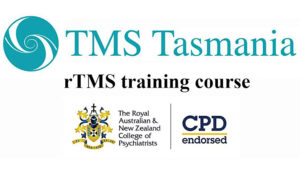Black Friday for Mothers with Post Natal Depression Media Release – 13 December 1996
Women seeking intensive psychiatric treatment because of severe post natal depression have been left out of those categories of psychiatric illness which the Federal Government will allow to exceed its new Budgetary restrictions. Many other severe psychiatric illnesses also appear to have been excluded with the potential for devastating consequences for the children and families of these patients.
It appears that people who suffer from severe narcissism, paranoia, and suffer severe neurotic disorders may not be included in the more restrictive categories. Most importantly there is no mention that mothers suffering severe post natal depression will qualify, thus aggravating an already under-diagnosed condition, which 10% of new mothers may suffer from.
To qualify for more than 50 visits in any 12 month period, a person must have:
- a history of severe sexual or physical abuse which has led to a psychiatric illness, or has been diagnosed as suffering from borderline personality disorder or anorexia nervosa or bulimia nervosa; and
- been rated with a level of functional impairment within the range of 1 to 50 according to the Global Assessment of Functioning Scale; and
- a history of failed related psychiatric treatment.
President of the National Association of Practising Psychiatrists, Dr Gil Anaf, said “There was still no understanding of what happens to existing patients. Many patients ringing us are very concerned about their current treatment. All of this confusion has done a grave disservice to the emotionally ill and interrupted treatments already in progress.”
The Federal Government announced in its August Budget that it would halve psychiatric Medicare rebates for patients making more than 50 consultations in any 12 month period for psychiatric care. Many doctors and patients protested at the decision. Now some conditions will be allowed 160 visits per 12 month period with full rebate.
Dr Wooldridge’s statement in the House in Parliament on Wednesday 11 December lists those conditions which will be allowed to exceed 50 visits in any one year. Dr Wooldridge said these include, “…people who fall into the category border line personality disorder, eating disorders, particularly anorexia nervosa or bulimia nervosa, or one of the three following psychiatric illnesses that have resulted from severe sexual or personal abuse – dysthymia, substance related disorders or somatisation – may qualify for additional treatment.” In addition these people will be subject to new item numbers listed in the Medicare Schedule.
Dr Anaf said, “The creation of new Medicare Schedule Numbers opens up the question of privacy. It appears that if you have a severe psychiatric illness you are subject to very explicit identification and potential stigma, and this carries over to affect children of emotionally ill mothers: they have no say whatsoever in privacy issues.”
“The 160 session limit would exclude those patients currently undergoing Psychoanalysis at the rate of 4 to 5 visits per week. The effectiveness of the treatment depends on this type of intensity and sadly these patient will now suffer.”
“Also the Minister’s statement opened up questions over what is personal abuse (Hansard) vs physical abuse. There is absolutely nothing about those patients who have suffered emotional abuse. Post-partum disorders (post natal) which are subsets of other disorders other than those specified at present have not been included.”
“Also the question arises about patients who do not wish to fail other treatments before going into intensive psychotherapy, and includes the question of current patients who have not previously failed other forms of treatment. The Minister gives no assurance to those suffering narcissistic personality disorders.”
“The Minister’s statement means nothing to those patients left in the position of being effectively denied the choice of the most appropriate treatment for their particular condition, including psychoanalysis” Dr Anaf said.


